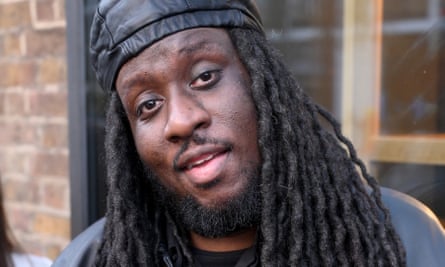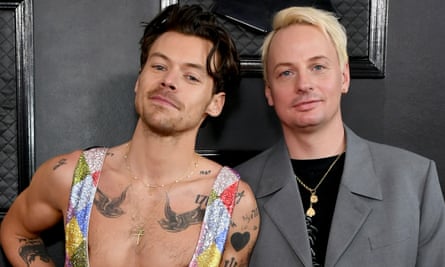Bright lights and public adulation are commonplace for those few singers who regularly hit the charts. But behind the hubbub that surrounds performers such as Harry Styles, Ed Sheeran or Little Simz, hides a small group of hitmakers, co-writing hugely commercial songs and rarely making headlines. These are the music industry’s secret weapons.
Crucial to this backroom role, according to one of the most successful newcomers around, is the job of keeping a pop idol grounded in normal life. Speaking this weekend about the close partnerships involved, Kal Lavelle has revealed that a top priority for her is making sure that an A-list star, who will often step straight from a private jet into a helicopter, can still deliver lyrics that fans can relate to.
“I want to bring my little bit to the table, so I need to be experiencing things in the real world,” she said. “I don’t want the singer to always be reaching back into their past for ordinary things to write about. I feel strongly I should help them write something fresh and authentic.”
In 2021, Irish-born Lavelle’s song Shivers, written with Sheeran, reached No 1 in the UK and on Billboard’s adult pop airplay chart in the US. It won awards too, and led to Lavelle being signed up by Sony Music Publishing, where executives describe her as possessing a “rare ability to quickly and deeply connect with other songwriters”.
By now, Sheeran is surely a stranger to bus routes but Lavelle values her incognito status. She deliberately lives a normal life, she says, despite her proximity to international fame. “That’s the great thing about music publishing and writing: you don’t get recognised except within the industry. You can go into a supermarket and no one knows who you are. Even if Shivers is playing, they don’t know I co-wrote it. Ed can’t go into Tesco’s looking for oat milk, whereas I can, and that suits me.”

Only occasionally is the spotlight trained on the songwriters, and the annual “Ivors” – the London awards ceremony named after the British songwriter Ivor Novello – is just such a moment. This year’s lineup of nominees for the event on Thursday night features some well-known names, including Stormzy, Florence Welch of Florence + the Machine and Alex Turner of Arctic Monkeys, but many are less familiar.
Kid Harpoon is up for three awards for co-writing Styles’s hit As It Was with Tyler Johnson. Cleopatra Nikolic, also known as Cleo Sol, is nominated for best album for her work on Little Simz’s No Thank You, but she is also being nominated for Sault’s song Stronger. Nominated for best contemporary song is the writer known as PRGRSHN, AKA Kass Alexander, who co-wrote Hide & Seek for Stormzy. They all join Lavelle, who is recognised for her work with Sheeran.
after newsletter promotion

“It’s great to have the Ivors as a showcase for writers because that never really happens,” said Lavelle. “It’s the one time we have our day in the sun. And some writers are so prolific.”
She relishes the freedom of working behind the scenes, Lavelle explained on the phone from Los Angeles. “I love going into a bar where no one knows me, or into M&S to choose my prosciutto and cheese roll. I would hate to lose that. That level of privacy is really important because I need to live to write.” Even recording studios can pose a risk: “I’m very conscious of how much time I am spending in a windowless studio. It’s not good for finding things to write about.”
She began her career staging independent music nights, and recalls that even then it was possible to distinguish the songwriters from the true star performers of the future. “Even when they were very young I could see they had something special. These people are born to do it. It’s not just chance, and it’s not just talent either because they need resilience and a phenomenal work ethic to survive. They want to be performing artists, so they don’t envy me my privacy. They want the accolades.
“When I was young, I wanted to be famous. Then I actually saw it happening to people around me and realised I didn’t.”
Lavelle’s method is tailored to each artist she works with, but she always starts with a long personal conversation. “It’s almost like a mini therapy session. I ask how things are and if they are seeing anyone at the moment. There needs to be a truthful energy there, whether it’s a dance song or about heartbreak. So there is no formula: I just want to make a song that’s authentic.”

